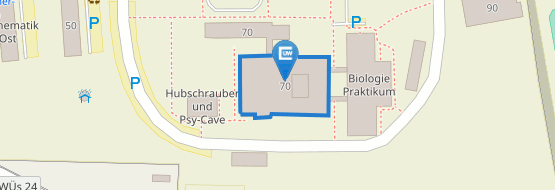REXUS/BEXUS
REXUS/BEXUS-Projekte
BEXUS-26/27, QUEST, September/Oktober 2018
Quadspectral Unaided Experiment Scanner of Topography
QUEST is the acronym for Quad-spectral Unaided Experimental Scanner of Topography. It scans the planet surface by analysing an array of four light sources (RGB and IR) and a spectrometer. As a result, the experiment should produce an overview image of the surface with marked areas depending on the type of it. The experiment should distinguish between snow, water, plants, rocks and overlaying clouds. Areas which can’t be recognised should be marked specially. The practical aim is to build an autonomous system which could be used in interplanetary missions with demanding constrains to the bandwidth. Therefor we must develop a reusable algorithm that could be adjusted with different parameters for varying planet surfaces. Regarding the hardware the experiment has to be built in a modular way so that we can easily swap sensors for missions with distinct requirements. Besides of the experiment an infrastructure hast to be built to analyse and command the experiment.
REXUS-24, DAEDALUS, März 2018
Bau und Abwurf eines "Spacecraft" zur Messung atmosphärischer Parameter
Unter der Betreuung von Professor Kayal von der Professur für Raumfahrttechnik werden im März 2018 die „SpaceSeeds“ an Bord der REXUS 23 Rakete an den Rand des Weltraums fliegen, und auf dem Weg zurück grundlegende atmosphärische Daten messen und zur Bodenstation senden.
Update April 2019: Im März 2019 konnten nun endlich die SpaceSeeds getestet werden, nachdem der Start um ein Jahr verschoben werden musste. Ein guter Artikel dazu ist im unieigenen Magazin "einBlick" erschienen. Den Artikel finden Sie unter diesem Link
REXUS-20, PATHOS, März 2016
Position-vector Acquisitaion Through Horizon Observation
Das Nachfolgeprojekt von HORACE (REXUS 16) setzt sich zum Ziel die Lagebestimmung mittels Horizonterkennung weiter zu entwickeln. Angestrebt wird die Miniaturisierung des Systems, um einen zukünftigen Einsatz in universitätseigenen Satelliten zu ermöglichen.
REXUS-16, HORACE, Mai 2014
Horizon Acquisition Experiment
HORACE (Horizon Acquisition Experiment) is an experiment flying on REXUS 16, a rocket that is designed for student experiments by the REXUS/BEXUS programme, a collaboration between the German Aerospace Center (DLR), the Swedish National Space Board (SNSB) and the European Space Agency (ESA).
The aim of the experiment is to develop a sensor system, which is supposed to evaluate autonomously its attitude relative to the earth. What we want to determine during the rocket flight is whether this approach is really apt to acquire the attitude even under stress conditions.

